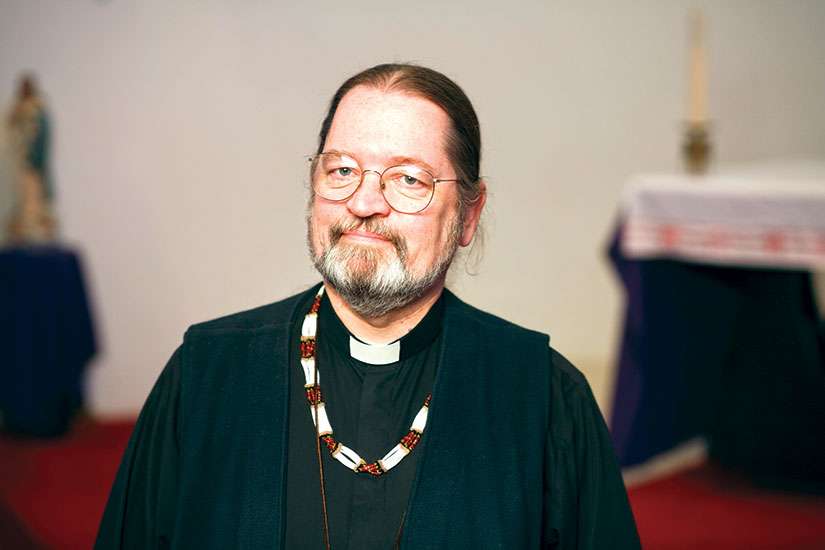MacDonald, who is the first National Indigenous Bishop of the Anglican Church of Canada, spoke at Toronto’s St. Gabriel’s parish Nov. 25 to reflect on what Christians can do to repair Canada’s relationship with the indigenous people.
He said the Advent season is a good time to reconcile with the Church’s dark past surrounding Indian residential schools and move forward with an improved vision of the future.
“At the beginning of this Advent... we also should begin to identify where the living Word of God lives among us,” said MacDonald. “And I would like to suggest that the living Word of God lives among us in the recovery of indigenous rights.”
MacDonald is of Ojibwa descent himself and can speak from his family’s experience, as well as his experience as the pastoral leader of indigenous ministries. He said the report issued by the Truth and Reconciliation Commission in June offers Canadians hope.
The commission was first established in 2008 to collect documents and testimonies to record the history of Canada’s residential school system over the previous century. Many of the more than 150,000 aboriginal children who attended residential schools experienced physical, psychological and sexual abuse.
The report released in June marked the conclusion of the commission’s investigation. The 381-page document outlined 94 recommendations, including specific recommendations for a second papal apology for the Catholic Church’s role in running about 60 per cent of the 139 residential schools. The report also called for the Church, along with other faith communities, to work with indigenous spiritual leaders to recognize “the responsibility that churches have to mitigate such conflicts and prevent spiritual violence.”
“During the Truth and Reconciliation process, a lot of Catholic indigenous people were very critical of the Catholic hierarchy,” said MacDonald. “I think that it’s time for the Roman Catholic Church to reclaim its past... I believe that God is calling the Christian churches, the Roman Catholic Church in specific, to a reset of our relationships and to begin to live in hope, justice and peace.”
The 94 recommendations outlined in the commission’s report are a good start, said the Anglican bishop, but Christians can do more, even as lay people.
“If even three of you decided to go to your MP and say ‘I am outraged at the disparity of education for First Nations people to every other Canadian; I am outraged that people in Canada don’t have access to drinkable water,’ ” said MacDonald. “I think if that was expressed strongly and positively, I think we would see a very different picture.”
MacDonald also suggests people be more engaged with the native people’s culture and traditions. The 2011 census estimates that 56 per cent of aboriginals now live in urban areas. MacDonald suggests that a good way to learn more about indigenous culture is by seeking out local powwows and creating community relationships. It’s also important, he said, to seek out ways to be more welcoming to the native culture within the Church community.
“There is a (Native) Peoples’ Mass at St. Anne’s Church (in Toronto). You might want to attend that,” he said. “The indigenous people here in Toronto who are Roman Catholic probably would love to attend a Mass that has some of their symbols and culture integrated... I think that as more cultures are integrated into the life of our churches, both Anglican and Catholic, and other churches as well, that they find better ways to welcome people.”
Overall, MacDonald said he had great hope in the resilience of the aboriginal people. The young people, especially, value both their aboriginal heritage and their Canadian heritage. In that, MacDonald said, is a good glimpse of a better future.
“I think the problem before was that there was a hidden assumption that indigenous people would have to adapt and become like everybody else,” he said. “I think I’m very hopeful and very excited for the young people who are able to carry their indigenous identity into a hopeful sense of broader identity within Canadian society.”


